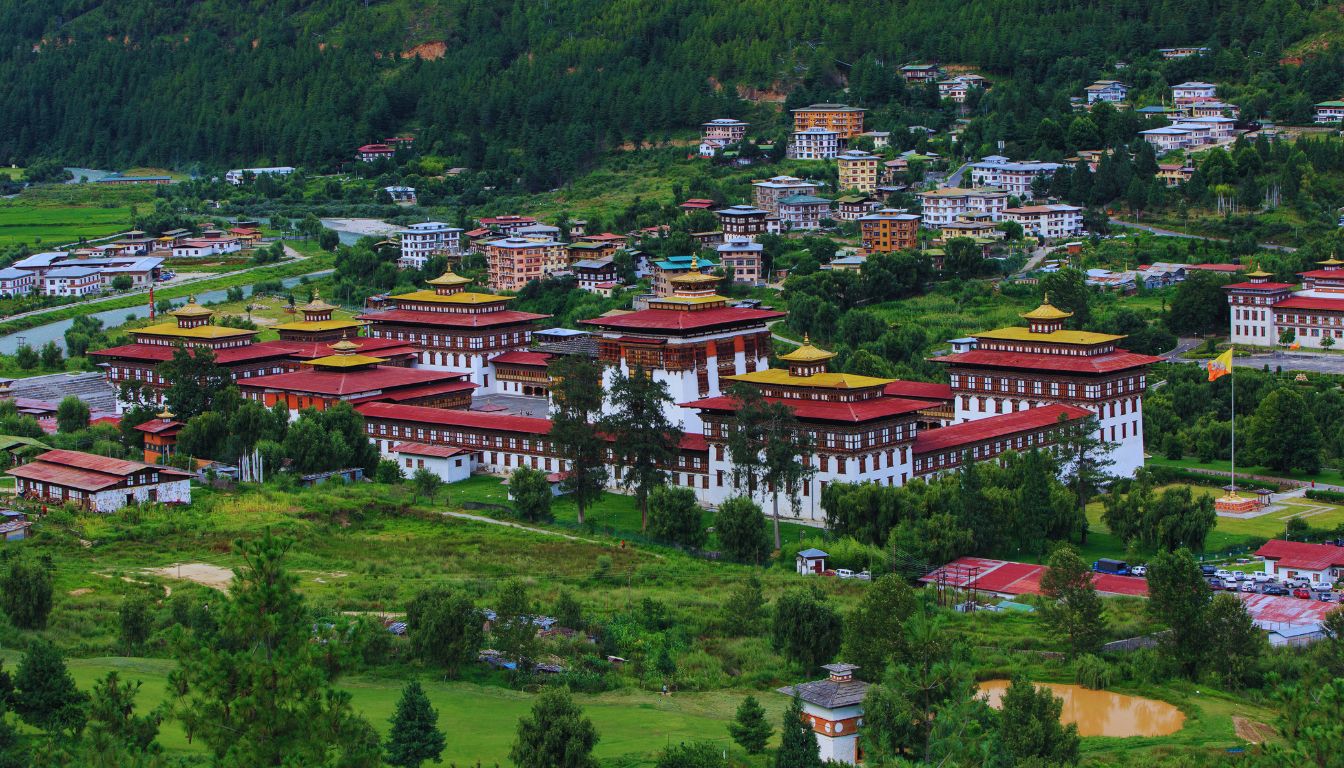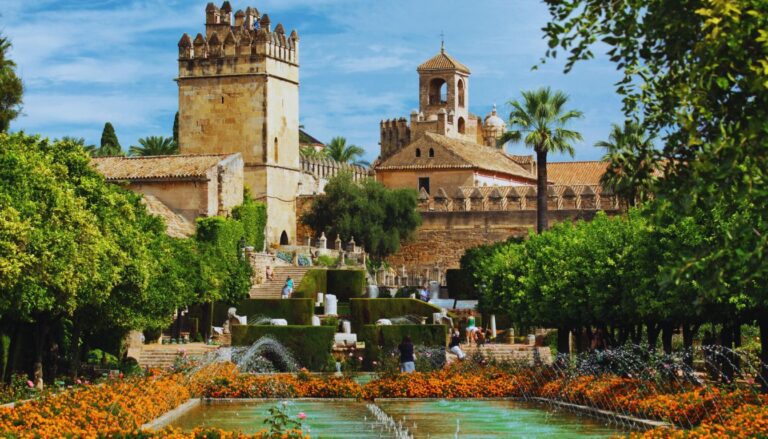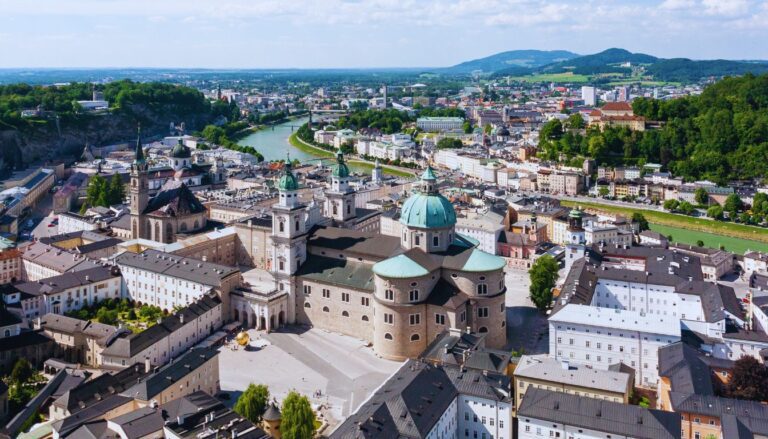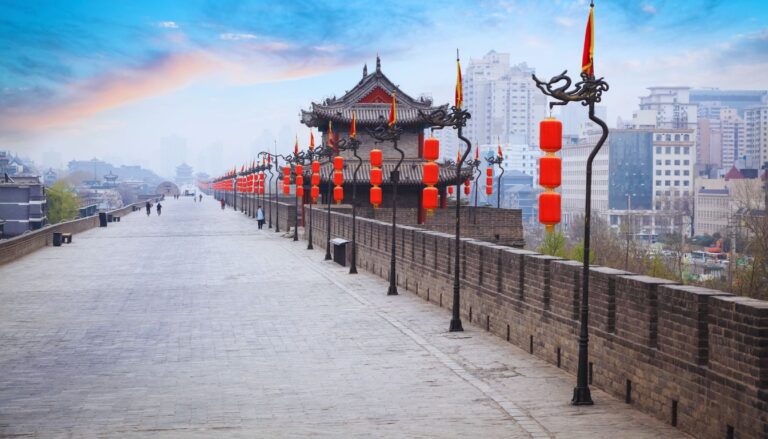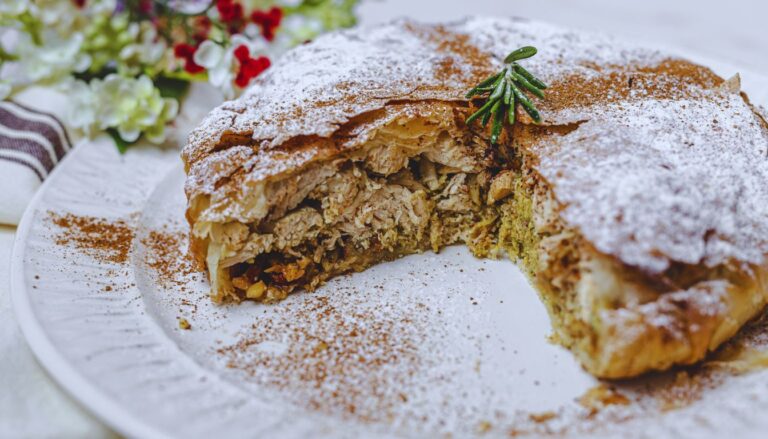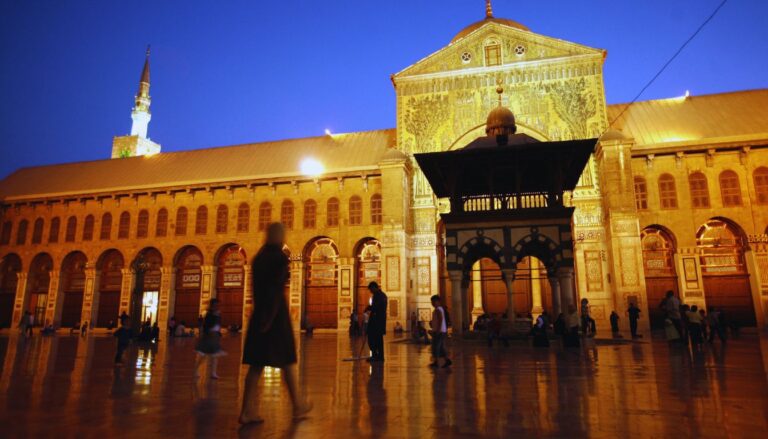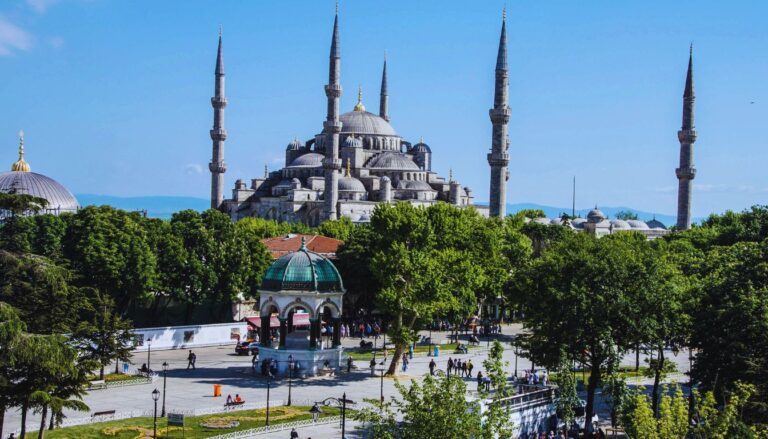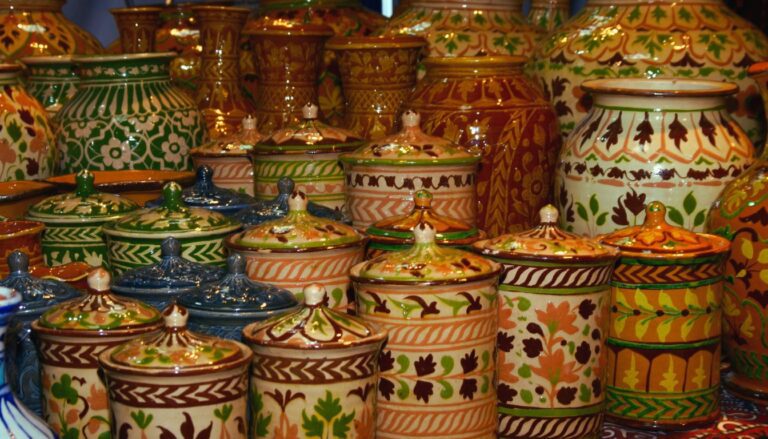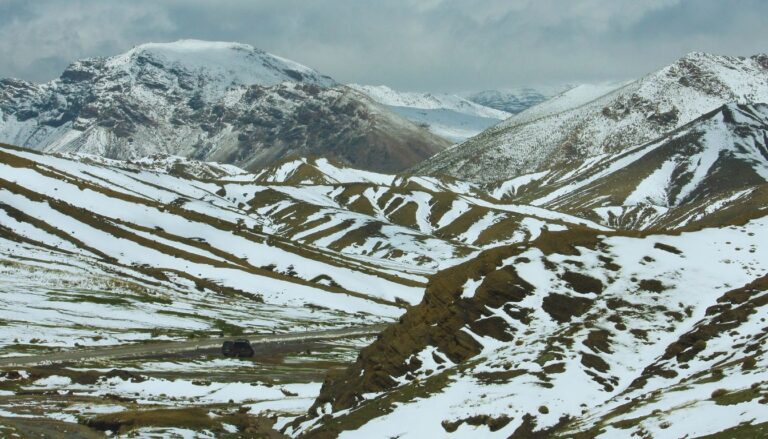Thimphu, Bhutan
Nestled in the eastern Himalayas, Thimphu stands as the world’s only capital city without traffic lights, where tradition and modernity dance in careful balance. As Bhutan’s spiritual and administrative heart, this unique city offers visitors a glimpse into a culture that measures progress in happiness rather than purely material wealth. From the magnificent Tashichho Dzong to the world’s largest seated Buddha statue, Thimphu embodies Bhutan’s commitment to preserving its ancient Buddhist heritage while embracing mindful development.
This guide reveals local secrets and cultural treasures, transforming your visit into a memorable journey.
Table of Contents
Best Places to Visit
- Tashichho Dzong: Magnificent fortress-monastery housing government offices
- Buddha Dordenma: Giant golden Buddha statue overlooking the city
- Motithang Takin Preserve: Home to Bhutan’s national animal
- National Memorial Chorten: Sacred Buddhist shrine and gathering place
- Clock Tower Square: City center with traditional architecture
- Centenary Farmers Market: Vibrant weekend market
- Sangaygang View Point: Panoramic views of Thimphu valley
Must-Visit Cultural Landmarks
- National Textile Museum: Showcasing Bhutan’s rich weaving traditions
- Folk Heritage Museum: Traditional Bhutanese house and lifestyle
- National Library: Ancient Buddhist texts and literature
- Institute for Zorig Chusum: Traditional arts and crafts school
- Simply Bhutan Museum: Interactive cultural museum
- Dechen Phodrang Monastery: Former dzong turned monastic school
- Changangkha Lhakhang: Ancient temple with protective blessings
Cultural Insights & Traditions
Thimphu’s culture reflects Bhutan’s unique approach to life:
- Gross National Happiness: National philosophy prioritizing wellbeing
- Buddhist Traditions: Daily religious practices and festivals
- National Dress: Mandatory wearing of Gho (men) and Kira (women)
- Traditional Arts: 13 traditional crafts (Zorig Chusum)
- Bhutanese Etiquette: Respectful customs and social norms
- Spiritual Practice: Prayer wheels, flags, and meditation
- Traditional Medicine: Indigenous healing practices
Top Cultural Experiences
- Watch students at the Zorig Chusum school
- Participate in a Buddhist meditation session
- Learn traditional archery, Bhutan’s national sport
- Join a Bhutanese cooking class
- Attend a local festival (tshechu)
- Visit monk debates at monasteries
- Experience traditional hot stone baths
- Learn about thangka painting
- Try on traditional Bhutanese dress
Best Time to Visit
- Spring (March-May): Mild weather, rhododendron blooms
- Fall (September-November): Clear skies, major festivals
- Summer (June-August): Lush landscapes, occasional rain
- Winter (December-February): Cold but clear, fewer tourists
- Festival Season: Check lunar calendar for tshechu dates
How to Get Around
- Walking: Best for city center exploration
- Taxi: Available and affordable
- Local Bus: Limited but functional public transport
- Private Driver: Required for most tourists
- Note: All tourism must be arranged through licensed operators
- Cycling: Growing in popularity but hilly terrain
Where to Stay
- City Center: Modern hotels near Clock Tower
- Motithang: Upscale hotels with valley views
- Near Dzong: Heritage-style accommodations
- Northern Thimphu: Boutique hotels in quiet areas
- Note: All accommodations must be arranged through tour operators
Best Places to Book Your Trip
Planning your dream trip is easy with trusted travel platforms. To secure the best deals on flights, accommodations, and tours, check out:
- Booking.com: Offers a wide range of hotels, apartments, and hostels to suit every budget.
- GetYourGuide: Book unforgettable experiences like guided tours, cooking classes, and fast-track passes.
- Expedia: A great platform for bundling flights, hotels, and car rentals for a seamless booking experience.
- Skyscanner: Perfect for finding the best deals on flights.
Pro Tips for Visitors
- Book through licensed Bhutanese tour operators
- Respect dress codes when visiting temples
- Learn basic Dzongkha greetings
- Always walk clockwise around religious structures
- Ask permission before taking photos of people
- Carry cash – limited card acceptance
- Adjust to the altitude gradually
- Try local dishes like ema datshi
- Purchase handicrafts from authorized shops
- Respect smoking restrictions
- Practice responsible tourism
- Be prepared for early restaurant closings
Immerse yourself in Thimphu’s spiritual essence by joining locals for morning prayers, walking meditation paths through ancient monasteries, and experiencing the profound peace of Bhutanese Buddhism. Let this unique capital city show you a different way of measuring life’s success through the lens of happiness and cultural preservation.
Traditional Ema Datshi of Thimphu: A Local’s Guide to Authenticity

